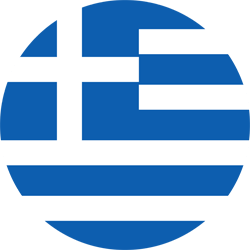[:el]New Year’s traditions in Greece vary depending on the area, but some are well-known and followed almost all over the country. The breaking of the pomegranate in the Peloponnese, the “bouliristina” in Samos, the “good hand” in Crete, the “askeletoura” and the stone at the entrance of every household are just some of the New Year’s traditions.
The stone at the entrance – Crete
After the ringing of the bell on New Year’s Day, especially in the countryside, everyone after the church, take a stone, to make their cross and go home. As the tradition says, the bigger the stone the more happiness, peace and joy, it brings to the homemade.
The carols with fires – Kavala
The custom survives the years of Ottoman domination. The boys who will leave soldiers in the new year gather large stacks of wood in the square. On the eve, they lit a big fire and chased the carols.
The breaking of the pomegranate – Peloponnese
On the morning of New Year’s Eve, the family goes to the church and the housekeeper holds a pomegranate in his pocket to make it work. Turning home, he has to hit the doorbell bell – he does not open himself with his key – and so be the first to go home to do the good foot, with the pomegranate in hand. Entering, with the right one, breaks the pomegranate behind the front door, it drops down with force to break and throw his berries everywhere, and at the same time says: “in health, happiness and joy the New Year and as many as you have pomegranate, so much pounds to have our pocket all year round. ”
Sculpture – Crete
The scabbard, also known as the Grand Cemetary or Crown, is a wild plant that grows in Crete and other regions. Even if you take it out of the earth and hang it, it does not stop producing new leaves and flowers. The people believe that this great vital force can translate it into animate and inanimate, so for the New Year’s Eve they hung the cloak in their homes. This is an ancient custom of good fortune that dates back to the 6th century, but today it tends to be abandoned despite being preserved in many areas.
The good hand – Crete
The good hand is another traditional custom of western Crete. Today, as in other parts of the country, money is usually donated by grandparents, grandmothers, the godfather to the child. But earlier, the good hand was a homemade candy made by the housewives.
The feeding of the tap – Central Greece
In some areas on New Year’s Eve, they go to the closest fountain “to steal the blooming water”. They call it an idiot, meaning silent, because they do not make a word all the way. They leave the taps of the village with butter and honey, hoping that the water runs and that the new house will be home and the sweetness of the honey, so their life is sweet. In order to have a good crop, when they get there, they “feed” with various delicacies such as butter, bread, cheese, legumes or olive branch. They even said that whatever would go first to the tap, she would be the happiest one all year round.
The “Colognes” – the Ionian islands
On New Year’s Eve in the evening, the city’s inhabitants, full of joy for the coming of New Year’s Eve, go down the street holding bottles of cologne and singing each other: “We came with a wheel and flowers to call you Times of Many.” In the Cyclades, they consider good omen to blow the northerly on New Year’s Eve. They also consider a good sign if the pigeon comes to their yard this day.
The scattering of leaves-Thassos
It is a very old custom during which all sit around the burning fireplace, pull the anthrax out and throw around the charcoal, olive leaves, putting in their mind a wish, but not to say it to the others. Whichever turn the sheet, he will have his wish.
The “probed” and the “bouillon” – Samos
Apart from the vassilopita, the women of Samos also make the “projected”. It is a dish with sweets that “judges” the housekeeping of Samiotissa. Necessary “component” of every house is the breaking of the pomegranate and the sowing of its seeds to fill the home happiness and health, while the lucky ones that will make the foot, take the “bouillon”, the pocket money known to all of us.
The “Momogeoi” – Eastern Macedonia
With roots from Pontos, “Mogogeri” revive each year in Sitagros and Platanias, in Drama. It is a kind of traditional folk theater, where the protagonists imitate senile people, as well as the etymology of the word “mummer” from the mime + old man.[:]




